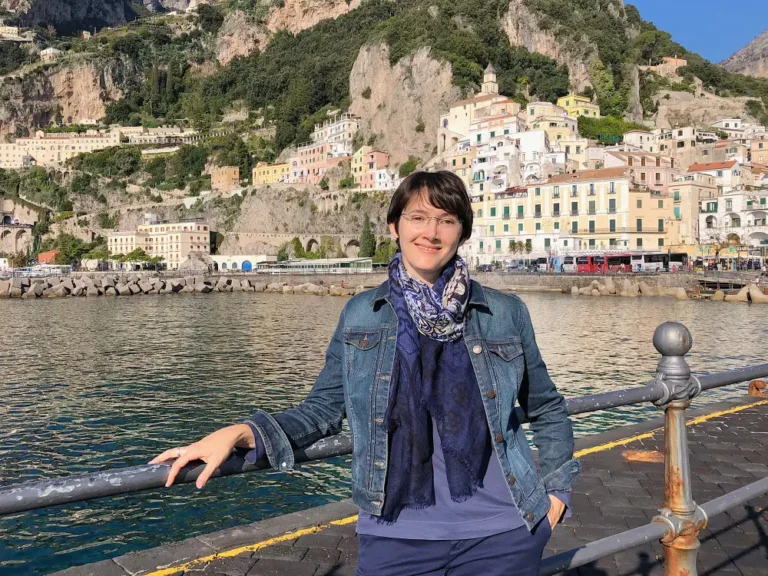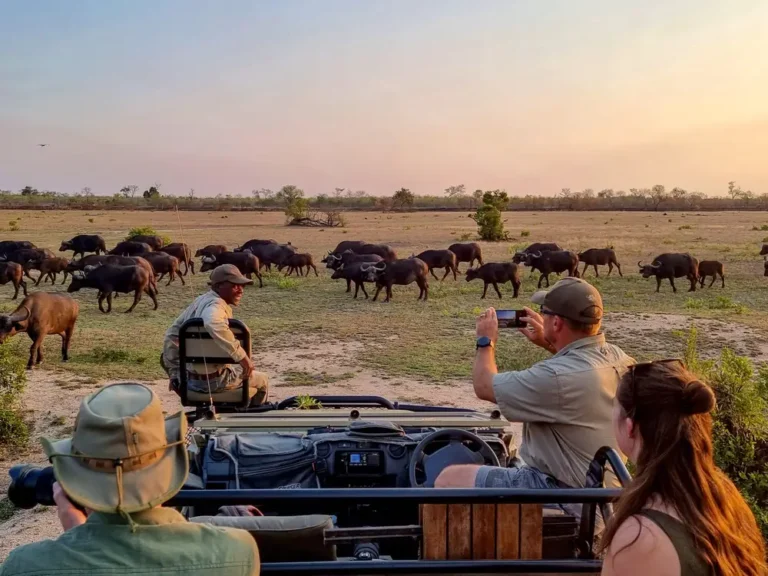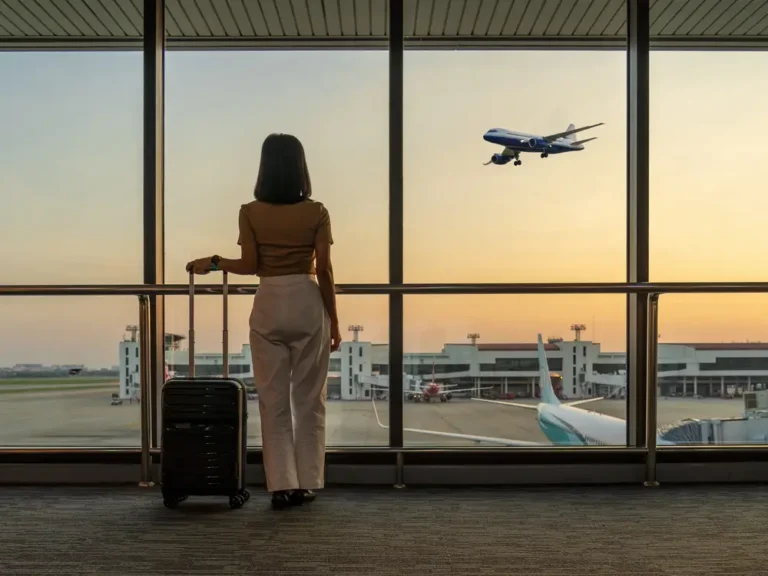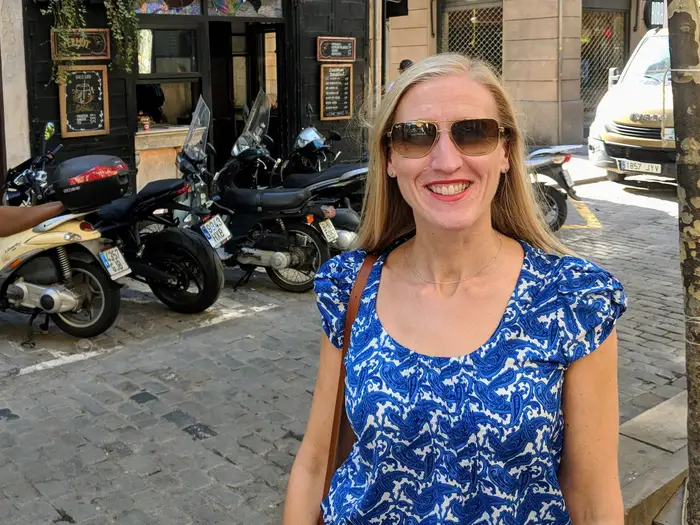I booked the cheapest accommodation I could find in Jackson Hole. For $150 a night, I got a bunk in a high-end hostel.
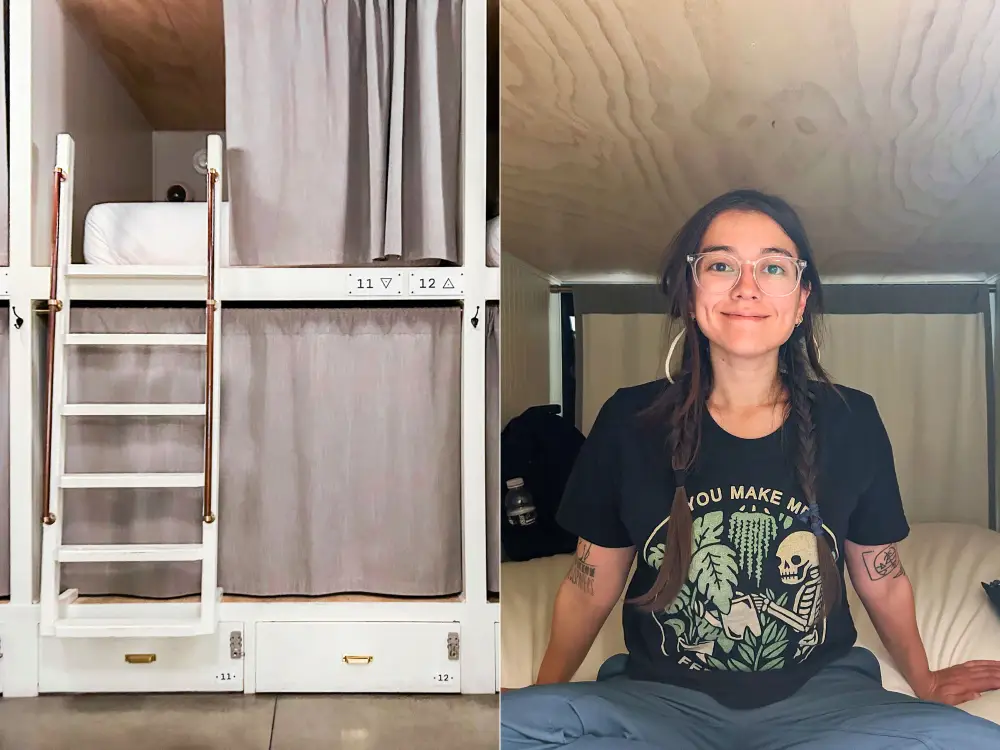
The cheapest accommodation B-17 reporter could find in Jackson Hole, Wyoming, was a queen-sized bunk in a high-end hostel for $150.
After booking two nights in ultra-luxury hotels for my first trip to Jackson Hole, Wyoming, I had a tight budget for the final night of my three-day adventure.
Desperate to find accommodation under $200, I scrambled through booking sites, sorting the pricing from lowest to highest. The cheapest spot I could find was a queen-sized bunk in a hostel for $150.
I’d never stayed in a hostel before, and after bunking in a train cabin with strangers, I was a bit nervous I wouldn’t sleep well.
But it wasn’t just any hostel — it was Cache House, a modern, sleek hostel with high-end touches.
I ended up sleeping as well as I would in any luxury hotel, and I’d definitely stay there again to save a buck.
In the basement of a historic hotel in Jackson, Wyoming, guests bunk in a room full of strangers.
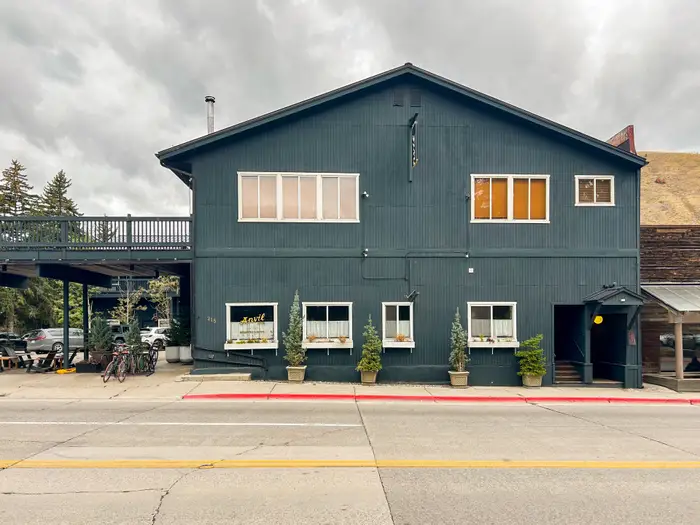
The exterior of Cache House and the Anvil Hotel.
Cache House is on the lower level of the Anvil Hotel. In the early 1900s, the site was home to a blacksmith shop. According to the company’s website, the shop’s owners built a motel in its place in 1955.
The basement began operating as a bunkhouse in the 1970s, a representative of the hostel told B-17. In 2020, it opened as Cache House, a “modern, elevated interpretation of the classic European hostel,” they added.
The hostel is in Downtown Jackson.
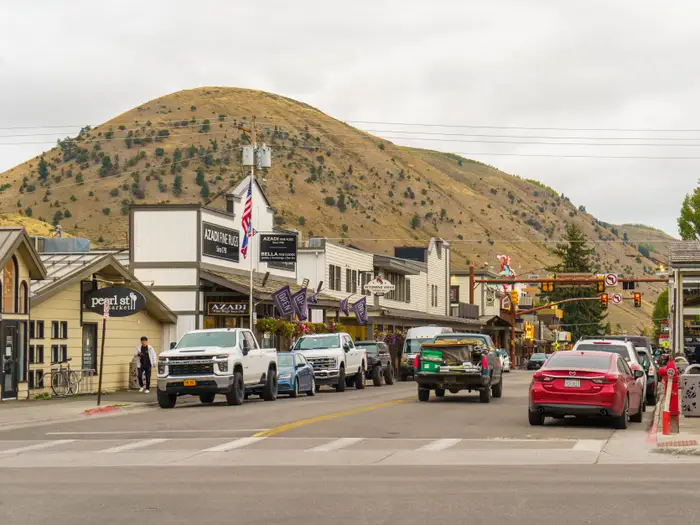
A street in Downtown Jackson near Cache House.
I thought Cache House was conveniently located in Downtown Jackson. I could walk to the town square, various restaurants, and popular local retail stores like Kemo Sabe, which sells high-end cowboy hats.
It’s also roughly a 20-minute drive to the closest Grand Teton National Park entrance, Granite Canyon.
I checked in at the lobby of the Anvil Hotel and then headed to the basement entrance.
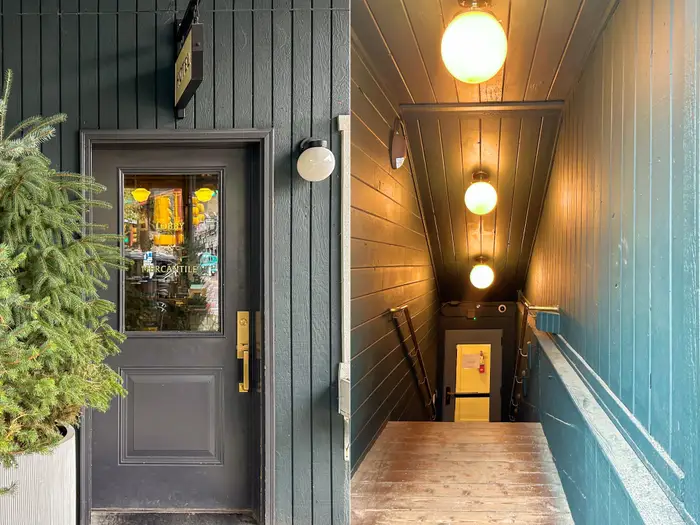
The hotel (L) and hostel (R) entrances.
The hostel’s check-in was in the lobby of the Anvil Hotel, where I could access complimentary coffee and daily newspapers.
After checking in, the attendant handed me a key card with my bunk number on it. The card granted 24-hour access to the Cache House entrance, which was down a set of stairs on the other side of the building.
In the hostel, I was greeted by a brightly-lit communal space with a mid-century modern feel.
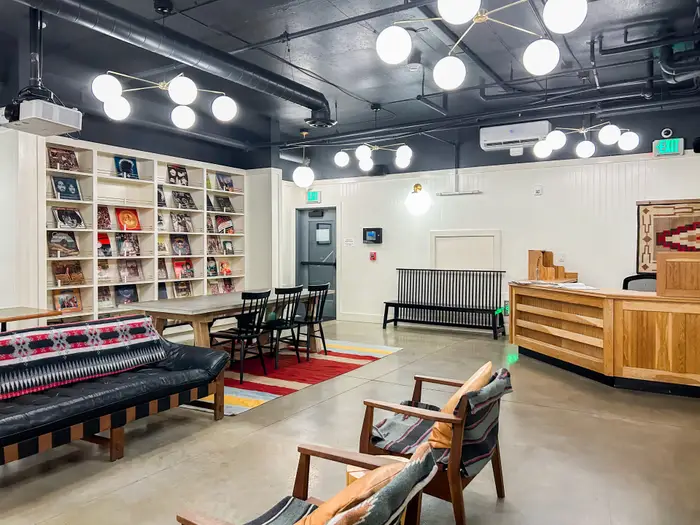
Inside the hostel’s communal space.
The communal space screamed midcentury modern with a touch of old-western culture. Sleek, neutral-hued futons and chairs were topped with geometric-patterned blankets that added a pop of color.
Apparently, it was all thanks to Post Company, a Brooklyn-based company hired by Cache House. The intention was to create a modern, functional, clean look for its communal space — and they nailed it.
There was plenty of lounging space where guests worked on laptops, read books, and socialized.
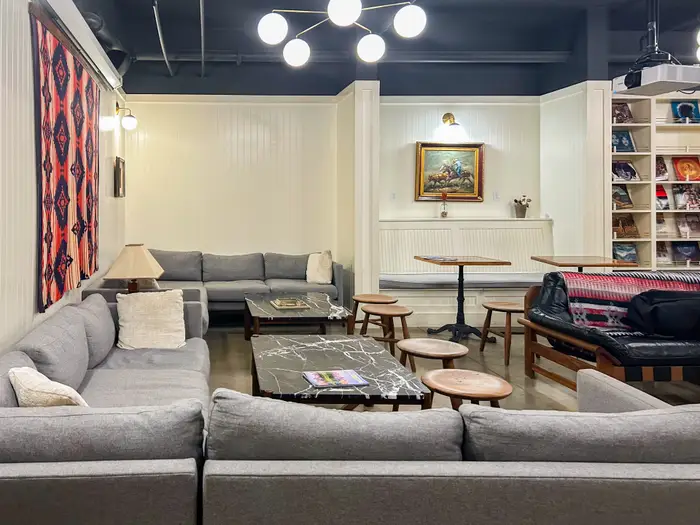
Couches in the communal space.
With a cluster of couches, a handful of tables, and several chairs, there was plenty of room to hang out, read the guidebooks provided, enjoy a meal, and get some work done.
I saw up to a dozen people in the communal space at a time during my stay. Most of them said hi to me each time I entered or exited the hostel.
After checking out the main space, I headed to my locker.
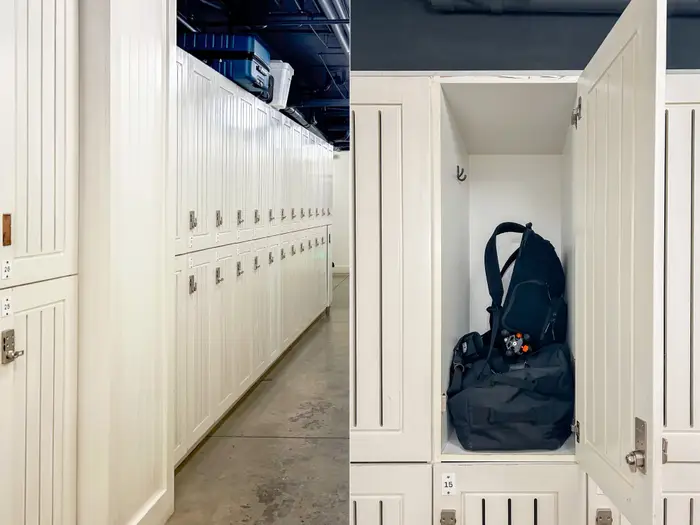
The lockers inside Cache House.
My booking included a locker that securely stored my belongings while using the facility. Guests set the code themselves using instructions provided at check-in.
I traveled with a backpack and a medium-sized duffel bag. After shoving them in, I realized I could have squeezed twice as much luggage inside.
The lockers were next to the bathroom, which had modern built-ins, bright lighting, and high-end toiletries.
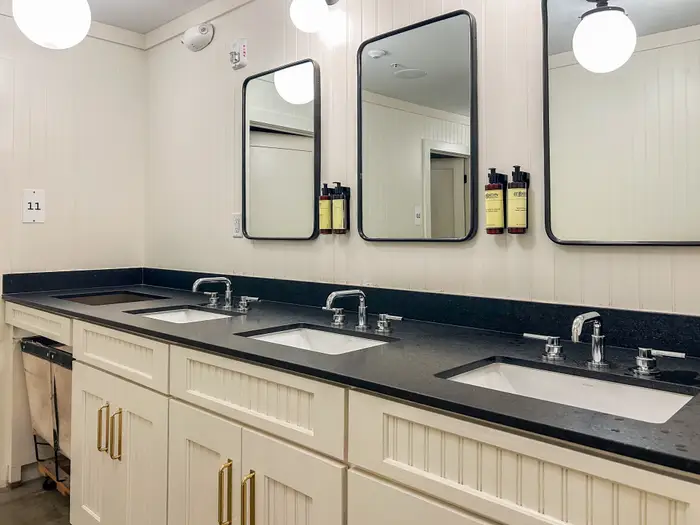
The bathroom’s entrance.
I appreciated the toiletries provided from the high-end apothecary and beauty brand Co Bigelow.
There were 12 private stalls. Some just had toilets, and some were full bathrooms with showers.
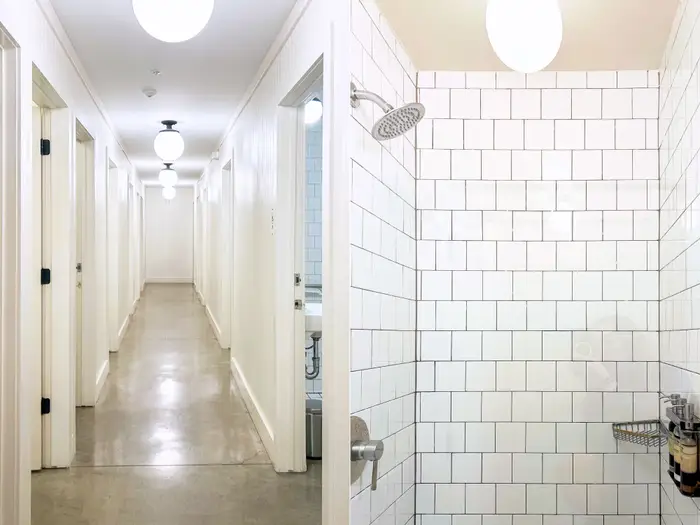
The bathrooms inside Cache House.
I was so impressed with how clean the bathrooms were. The showers were sparkling white without gunk between the tiles. Co Bigelow toiletries hung from a tiny shelf.
I was also surprised that there wasn’t a line to use the bathroom during my stay.
After washing up, I headed to my bunk.
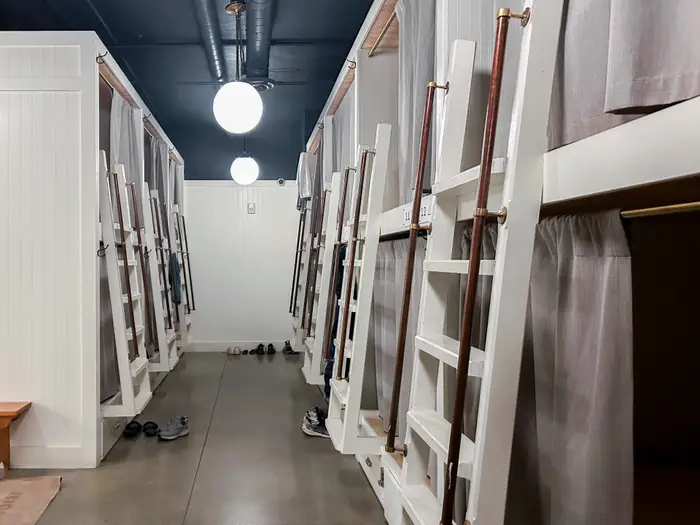
Inside the bunk room.
The bunk room had the same midcentury modern style as the communal space.
Cache House has 50 bunks, including twin, full, queen, and ADA-approved beds. Queen beds can be booked for two, but each person has to pay the full rate.
Rates typically start at $65 in the winter and $110 in the summer.
Each bed comes with sound-and-light-proof curtains and a drawer located beneath the lower bunks to store any belongings.
I booked a queen-sized top bunk, but next time, I’ll opt for a lower bunk.
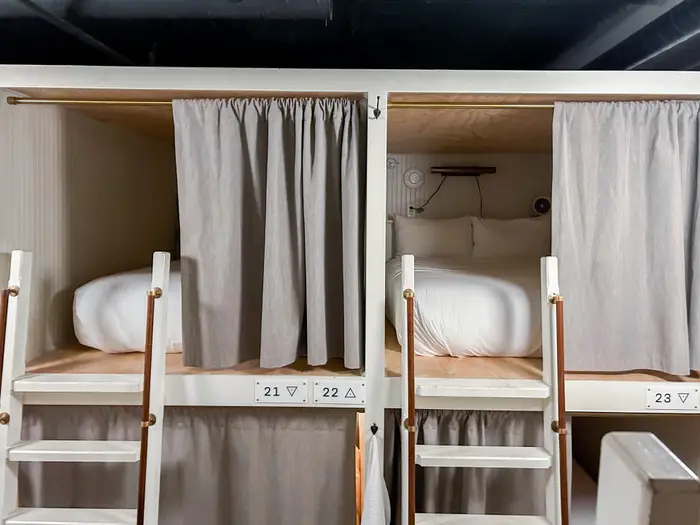
Upper bunks at Cache House.
When I booked the top bunk, I didn’t realize I’d be making it harder to access my drawer beneath the bottom bunk.
Since I only stayed one night, I didn’t need to use my drawer. Still, if I were to return for a longer stay, I’d definitely book a bottom bunk for easier access to my belongings.
Getting up and down the latter wasn’t difficult for me because it felt sturdy and had wide steps for my feet, but I could see it being a challenge for others.
Inside, I had a private nook with a fan, a reading lamp, and an outlet.
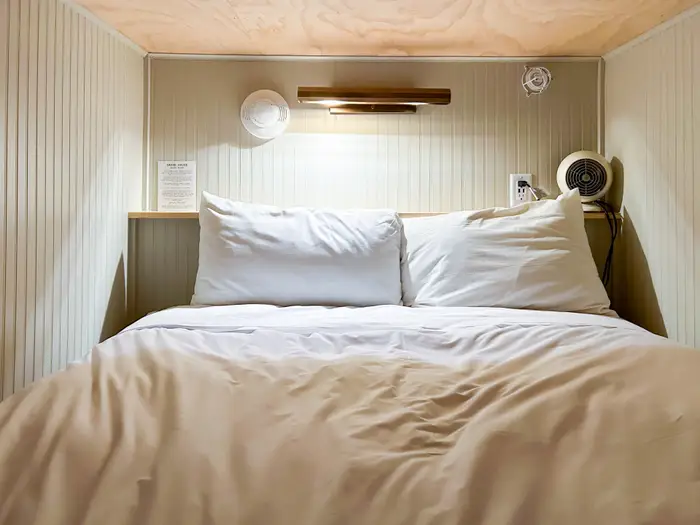
Inside the author’s bunk.
The privacy curtain blocked light and sound and made my bunk feel like a tiny room.
The bed took up all of the floor space. Above it, there was a built-in shelf with an outlet, a small fan, and a set of basic rules, including no smoking and noting that quiet hours are between 11 p.m. and 7 a.m.
There was also enough space to store my phone and bedtime essentials, such as a water bottle and a sleep mask.
The bed was as comfy as the ones I’ve slept in at luxury hotels. I sunk into the cushy mattress and cozied up in the linens and wool bedding.
Without noise from other bunks around me, I fell asleep as quickly as I do at home, and I slept until my alarm went off the next morning.
In the morning, I was surprised by how well the curtain blocked light.

The author’s bunk in the morning.
My sleep mask slipped off at night, but the light didn’t wake me up in the morning — the light-blocking curtain in the bunk did its job.
After freshening up, I checked out thinking I’d likely be back.
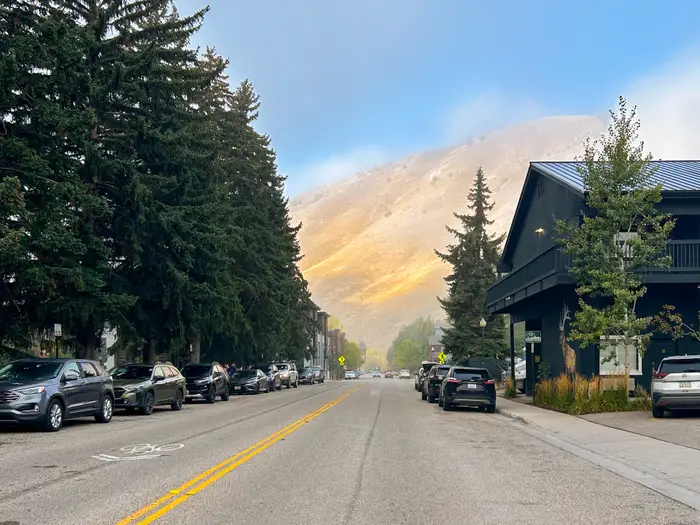
The street next to the hotel and hostel.
While I had reservations about staying in a hostel, this one felt clean, quiet, and comfortable. So, next time I need to save some money on a trip to Wyoming, I know where I’m staying.


